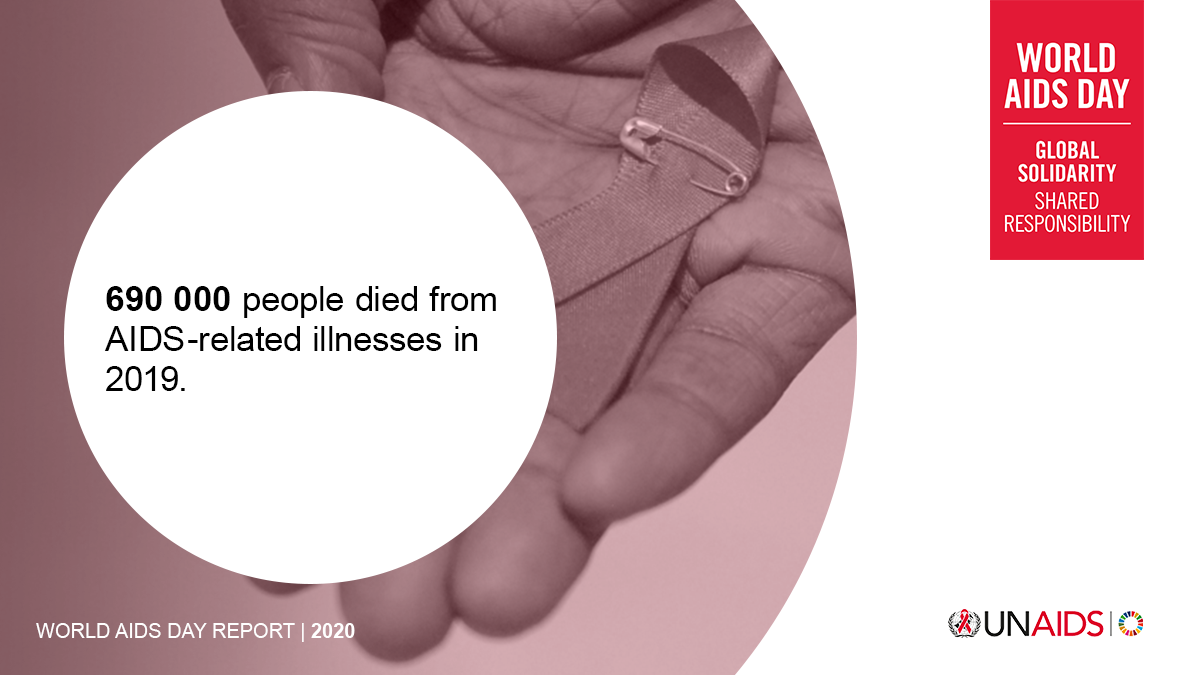Science is shining but public trust casts a shadow – HIV/AIDS lessons light the way
London School of Hygiene & Tropical Medicine https://lshtm.ac.uk/themes/custom/lshtm/images/lshtm-logo-black.png Tuesday 1 December 2020
The global community is certainly in a very different place for this year’s World AIDS Day. We are facing the colliding impacts of two of the biggest epidemics of our time: HIV/AIDS and COVID-19.
The AIDS movement has certainly demonstrated what can be done – that nothing short of spectacular progress is possible in terms of millions of lives saved from HIV. Yet with 1.7 million people newly infected with HIV in 2019 and nearly 700,000 deaths in the same year, the end of AIDS remains elusive.
The sobering reality is that even before the COVID-19 crisis, we were not on track to end AIDS as a public health threat by 2030 and the COVID-19 pandemic risks shattering hard-won gains and reversing progress.
The pandemic has taken lives and livelihoods all around the world, turning our way of life upside down in ways we never thought would happen, crippling economies in the process.
However, through the herculean efforts of research teams around the world, and a scale of collaboration and transparency never seen before, science is beginning to turn the tide against this devastating virus, bringing a much welcome wave of optimism as we near 2021. But science won’t be enough to bring life back to “normal”, we must bring people with us…and lessons from the HIV/response can be our guide.
Last month, I joined Connie Celum and colleagues in authoring a Perspective for the New England Journal of Medicine on Covid-19, Ebola, and HIV — Leveraging Lessons to Maximize Impact. Let's expore some of the major takeaways.
We cannot let history repeat itself - millions of people died because of inequitable access to life-saving HIV treatment. We must ensure that everyone in need can benefit from COVID-19 tools, no matter where they live.
Drugs only work if people are willing to take them. Successful ‘on the ground’ interventions rely on local leadership and involvement. Public trust is vital, and it must be earned.
Broad coalitions have been the bedrock of the AIDS response: individuals and institutions unashamedly united around the common cause of defeating AIDS. Scientists and communities have worked in partnership to drive progress and improve the scientific process. AIDS scientists were pressured to act faster, more transparently, and to communicate clearly about scientific rationale and methods. Shorter timelines for scientific investigation, regulatory review, and implementation of effective interventions were the result.
COVID-19 is foremost about people, not numbers or statistics. HIV/AIDS showed involving affected communities in planning and implementation of research and care is vital. With COVID-19, community engagement must be even bigger, more flexible and led by trusted experts.
Community engagement is needed to address mistrust of research and vaccines, as well as reluctance to participate in the clinical trials. Health care providers, scientists, community leaders, and policymakers can all work to encourage participation.
Perhaps most importantly though, the HIV/AIDS epidemic taught us the importance of sound science. Advances in technology coupled with our rapidly evolving understanding of COVID-19 means decision-making and communication are complex, making the development and sustainability of public trust more difficult.
The global health community and policymakers must ensure that positive announcements convey the strength of research and the need for rigorously implemented clinical trials to identify safe, effective interventions. We desperately need total transparency about trials and data.
The public is listening. We must ensure that the scientific community is responsive to their questions and concerns, and acting responsibly, clearly and safely.
These vital lessons from the AIDS response also underscore the critical need for continued investment in HIV research on a wide range of issues. We need the brightest minds to continue to work on it, particularly for a vaccine but I am hopeful that we are getting there.
In our new world living with COVID-19, we simply cannot let up our efforts to tackle HIV. It can be done but only if we counter prevailing complacency, take bold action and stay united. The convergence of science, policy, people and local action is essential.
LSHTM's short courses provide opportunities to study specialised topics across a broad range of public and global health fields. From AMR to vaccines, travel medicine to clinical trials, and modelling to malaria, refresh your skills and join one of our short courses today.